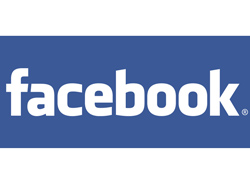Social networking site Facebook, which is quite popular amongst people all over the world and sometimes used for the wrong reasons, is announcing the fact that it can now provide language support for Arabic and Hebrew. At the current moment in time, Facebook provides support for 40 languages, but that does not seem to be enough since the social networking site is working an additional 60 languages. The overall goal is to make Facebook available on any and all languages in the world, and to my mind that is not an easy task to accomplish.
“We're making Facebook available in Arabic and Hebrew--two languages where writing begins at the right-hand side of the page and concludes on the left. Supporting different languages on the Web always entails many technical, cultural and linguistic issues, but right-to-left languages present extra challenges. For example, with right-to-left languages some of the characters, mainly punctuation marks and numbers, are the same as those used in left-to-right languages like English. The mix of characters between languages written in different directions makes it difficult at times for Web applications to determine the correct direction in which to display the language,” explains Facebook’s Ghassan Haddad
Designing a right to left web page is no easy task either. It may look like a simple mirror image of a regular web page that is already available in English, but the simple truth of the matter is that the web designer must change pretty much everything on the aforementioned page: text alignment, ordering of tabs on pages, different fields on forms, labels, buttons, and so on.
From a linguistics point of view, Facebook in Arabic and Hebrew must be careful not to make a faux pas. In the English language, verbs for example remain unchanged; in Arabic and Hebrew, they change according to the gender of the person included in the conversation. It is for that reason that Facebook had to implement a feature named “dynamic explosion” which automatically detects the gender of the person the verb refers to.
“Another challenge is the constant evolution of language with many different dialects of the same language,” Ghassan Haddad continues. “Arabic is the official language of more than 20 different countries including Algeria, Egypt, Saudi Arabia and Yemen. In some cases, the dialects can seem so different that they border on being completely separate languages. One common form of Arabic is Modern Standard, which is used in media, publishing and other formal and religious circles. It is the only written form of Arabic and the one that is used on Facebook.”
“We're making Facebook available in Arabic and Hebrew--two languages where writing begins at the right-hand side of the page and concludes on the left. Supporting different languages on the Web always entails many technical, cultural and linguistic issues, but right-to-left languages present extra challenges. For example, with right-to-left languages some of the characters, mainly punctuation marks and numbers, are the same as those used in left-to-right languages like English. The mix of characters between languages written in different directions makes it difficult at times for Web applications to determine the correct direction in which to display the language,” explains Facebook’s Ghassan Haddad
Designing a right to left web page is no easy task either. It may look like a simple mirror image of a regular web page that is already available in English, but the simple truth of the matter is that the web designer must change pretty much everything on the aforementioned page: text alignment, ordering of tabs on pages, different fields on forms, labels, buttons, and so on.
From a linguistics point of view, Facebook in Arabic and Hebrew must be careful not to make a faux pas. In the English language, verbs for example remain unchanged; in Arabic and Hebrew, they change according to the gender of the person included in the conversation. It is for that reason that Facebook had to implement a feature named “dynamic explosion” which automatically detects the gender of the person the verb refers to.
“Another challenge is the constant evolution of language with many different dialects of the same language,” Ghassan Haddad continues. “Arabic is the official language of more than 20 different countries including Algeria, Egypt, Saudi Arabia and Yemen. In some cases, the dialects can seem so different that they border on being completely separate languages. One common form of Arabic is Modern Standard, which is used in media, publishing and other formal and religious circles. It is the only written form of Arabic and the one that is used on Facebook.”

























